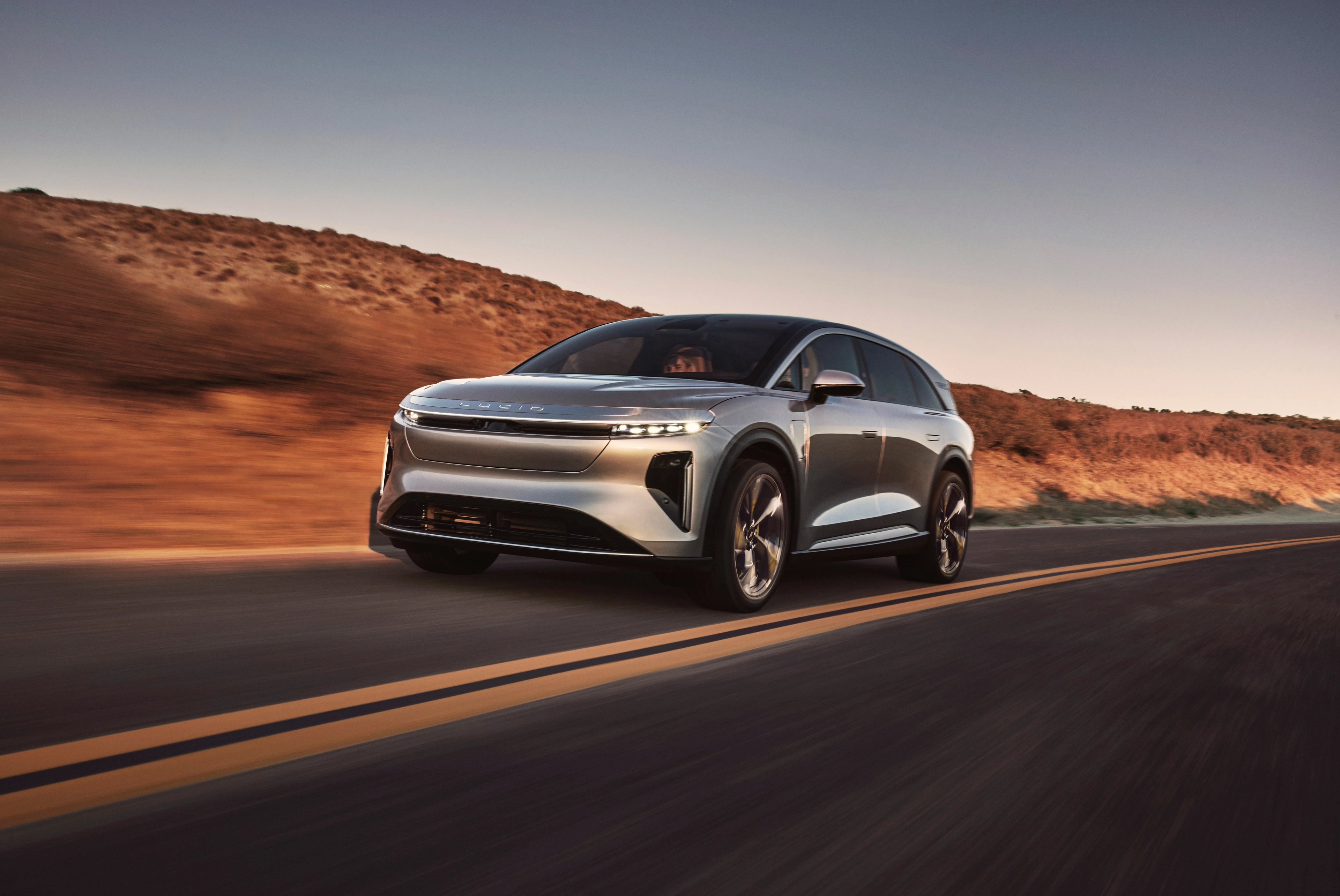Everything was setting up perfectly for Lucid Group (LCID 3.03%) and its investors. The young electric vehicle (EV) maker, which claims to manufacture the world's most advanced EVs, has recorded six consecutive quarters of record-breaking deliveries and moved past bottlenecks, delays, and disappointments from the past. It was gearing up to hand the baton to its newly launched, and highly anticipated, Gravity electric SUV which was meant to drive deliveries significantly higher in the near term.
The bad news? Recent data shows there could be a significant red flag for Gravity sales, but let's dig in before sounding the alarm.
What's going on?
While the Gravity has been in production for months now, registrations of the Gravity remained in single digits through June. More specifically, data from S&P Global Mobility showed the Gravity accumulated only nine U.S. registrations by June 30, while the company's Air sedan totaled 4,780. The latter was actually up a robust 52% year over year.

Image source: Lucid.
Right off the bat, investors' eyes should widen. Six months of production and only nine registrations? Before we start throwing red flags all over the place, there are a couple of things to consider.
First off, it's worth noting the difference between sales and registrations. Registrations are simply used as a proxy to gauge sales when automakers don't break out sales for individual models or regions. But there is a lag time between when a vehicle is sold and when it is registered, so we could be simply witnessing the last bit of data before the flood of registrations comes in.
Second, we also have to consider that Lucid acknowledged that most of the initial production models would be used for employees, demonstration drives, and showrooms rather than being sold to individual consumers.
Furthermore, we should recognize that even though the Gravity has been in production for six months, even Lucid acknowledges it's not where it wants to be with production, suggesting it could be longer until production ramps up for a noticeable uptick in deliveries and registrations.
"This is something I've said before, and I say it again, we're not where we want to be with the Gravity at this time of the year. We actually wanted to be ahead, making significant ... progress every day," Lucid CEO Marc Winterhoff said in an interview with Yahoo Finance shortly after Q2 earnings.
The slower-than-desired production ramp-up is significant enough for Lucid to cut its 2025 production outlook to a range of 18,000 to 20,000 vehicles, down from the 20,000 previously targeted. It shouldn't come as a total shock as newly implemented tariffs and trade policy have caused supply chain disruptions, among other headaches, and the automaker specifically said that lack of magnets from China caused much of the damage.

NASDAQ: LCID
Key Data Points
The good news
As of now, Lucid has managed to solve most of its supplier issues. Lucid is much more confident in its ability to ramp production during the second half of this year, going as far to say that the Gravity would generate the majority of its deliveries. That's a big statement given that there have been only nine registrations through June.
Make no mistake, this is a gigantic development for Lucid and its investors. If the Gravity were to flop, long before its next wave of vehicles can come save the day, it would put the company in a dire position. We have to remember that with a far lower price tag compared to the Air sedan, even if it still starts around $96,000 with shipping, it's expected to open the doors to a new consumer for Lucid, and the Gravity could have an addressable market of up to six times that of the Air sedan.
The Gravity achieving its desired level of production and deliveries will be critical for Lucid and its investors in the near term, and is absolutely something to keep an eye on. While nine registrations through June is scary to think about, it's not time to raise a red flag yet because of the factors previously mentioned. But the Gravity needs to start selling well -- and fast.





